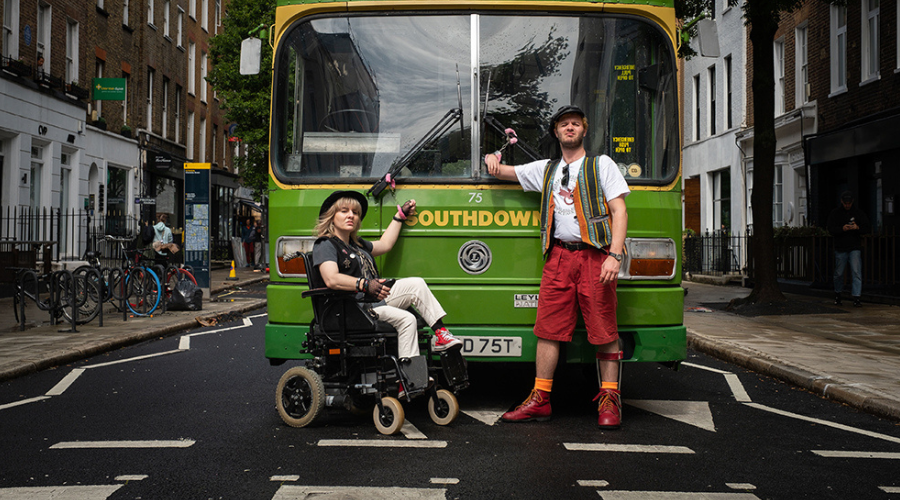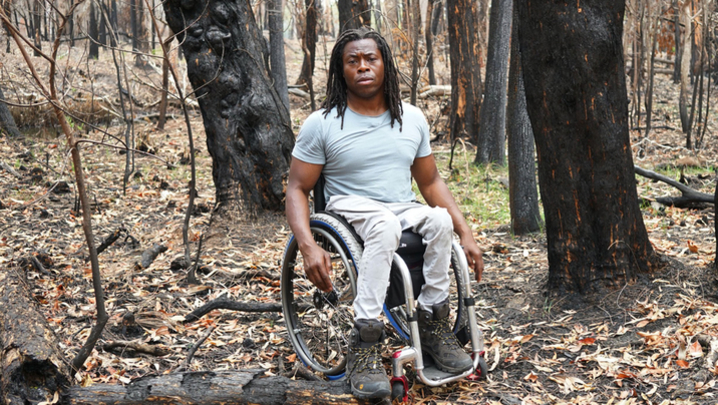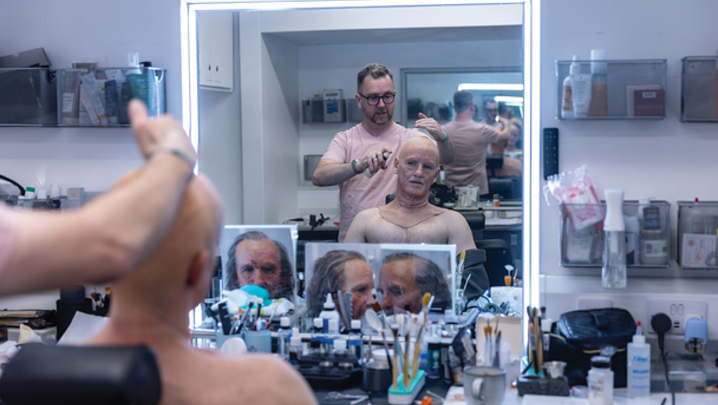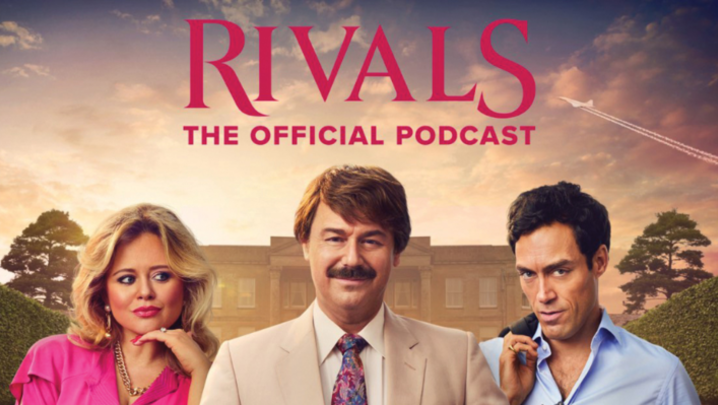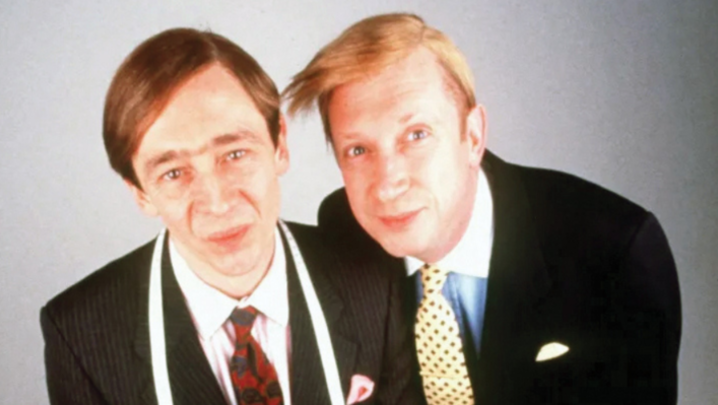Katy Boulton looks at how TV is starting to employ Access Coordinators – and what the job entails.
An “Access Coordinator” is a relatively new role in the world of British television. But it is one that disabled-led organisations, such as TripleC and DDPTV (Deaf and Disabled People in TV), have wanted to see brought in for several years.
Jack Thorne helped to shine a light with his blistering 2021 Edinburgh MacTaggart lecture. His stark message was that TV had “failed disabled people utterly and totally”.
That same year, Thorne and some of his colleagues launched a group called Underlying Health Condition (UHC), referencing the phrase that has been used to denigrate disabled people and – in the pandemic – to explain away or excuse a huge number of deaths.
Working with TripleC, DDPTV and the CDN (Creative Diversity Network), UHC published an independent study into access in the TV industry called “Everybody forgot about the toilets”. A key recommendation was that all productions should hire an Access Coordinator to be “the main point of contact for all cast and crew…. They should be brought on in the early stages of production… and work [throughout it].”
Since then, ScreenSkills’ High-End TV Skills Fund has supported the training of 25 deaf, disabled and/or neurodivergent people to become Access Coordinators. The first cohort is already working in the industry, with the second cohort moving on to industry placements between April and December 2024.
So what does the job of Access Coordinator involve?
Following the calls to create a new AC role, TripleC embarked on a consultation with its 1,800-strong community of deaf, disabled and/or neurodivergent creatives. The thinking was that the people who the role was designed to support should have a say in what it became. It was felt strongly across the community that the AC role should be undertaken only by a deaf, disabled and/or neurodivergent person.
As to what that job involved, the TripleC consultation said: “The job is essentially one of problem solving, working with people to find solutions – removing barriers so they can do their best work.... Access means not stopping a person from doing something or participating on an equal basis because their requirements have not been taken into account.
“This is far wider than just providing physical access, such as ramps or lifts. Access means that people can do what they need to do in a similar amount of time and effort to other people.”
It continued: “Access requirements can encompass mental health, physical health, caring responsibilities, the physical environment, communication, attitudes, and the way things are done.
“Every single person on a production will have access requirements and will benefit from having adjustments made for them.”
The TripleC consultation emphasised that “access needs to be everyone’s responsibility; ACs are only part of the solution... [which should encompass] training and education of people working in the industry around access and inclusion.”
To find out how the new role has been playing out in real life, I spoke to two working ACs and two trainees – all of whom are deaf, disabled and/or neurodivergent.
Bethany Matthews, AC at ITV Studios – Drama, said: “My job is wide and varied. An AC is someone who specialises in understanding the barriers people might face and finding creative solutions to overcome them. I help facilitate access for anyone whose personal conditions prevent them from giving their all at their job.”
Matthews noted that this could include people with caring responsibilities and people living with health conditions.
She added that it was common for people to hide their disability or condition due to stigma and stereotypes, some of which were perpetuated by on-screen portrayal. “An AC helps combat these stigmas and raises awareness of the barriers.… An AC will encourage best practice regardless of whether anyone has come forward to say they have access requirements.
“This creates a more welcoming and inclusive environment, where people know they are safe to embrace themselves and do their job to the best of their ability.”
Freelance AC Jess Mabel Jones said: “Attitudes to access and inclusion are definitely shifting, but progress is still frustratingly slow. I can really tell the difference between companies that see inclusion as a crucial human right and a powerful, creative opportunity – and those who are just ticking boxes. I want to work with people who mean it, who are excited and bold about it. The alternative is boring and deeply uncool.”
Like Matthews, Jones was clear that it was the AC’s job to embed best practice across the whole production. She was frank about what still needs to be done better: “Let’s be real – the industry needs to bring itself up to date. We’re missing out on incredible talent and failing to properly support the amazing individuals already here.
“People are our industry’s most valuable resource and, for too long, their physical and mental well-being has been seen as fair collateral.”
I also spoke to two trainee ACs, Vijay Patel and Sally Lisk-Lewis. Patel said: “I felt it was important for me to become an AC to show the importance of both access and intersectionality. As a person who has lived experience of varying forms of marginalisation, I believe access should be for everyone and should include intersectional approaches.”
They continued: “I want to play a part in a more inclusive society that values deaf/disabled/neurodivergent/autistic people and remove barriers so that they can do their best work. I hope my role will give people the confidence to ask for what they need and find ways to communicate that to others.
“I hope that this creates a blueprint for organisations to value access in their daily practice and not think of it as an afterthought.”
Patel’s point about access not being an afterthought is crucial, for the sake of the all-important bottom line, if nothing else. It’s much more expensive to firefight at the last minute than it is to build access in from day one.
Lisk-Lewis added: “It’s been a real education, seeing the challenges that deaf, disabled and neurodivergent talent face within our sector. And how important it is to level the playing field on- and off-screen and through the stories we tell.
“I’d like to empower disabled creatives to focus on the roles they’re paid for, rather than spend their time putting the right support and adjustments in place. And help to create welcoming, thriving and inclusive workplaces that are better for everyone.”
It was abundantly clear from all these conversations that the industry is in great hands when it comes to ACs. My rallying cry to all heads of department, producers, commissioners and decision makers out there is to urge you to champion this vital, long-overdue role. ACs will need the backing of senior members of the production. Please give them your all!
Katy Boulton is TripleC’s Strategy and Operations Lead. With a group of delivery partners, Triple C has led the current phase of AC training. The trainee ACs will undertake a placement on a high-end TV production for up to 12 weeks between April and December 2024. TripleC and ScreenSkills are looking for productions to host these placements.

